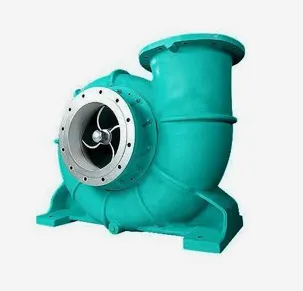English
- Afrikaans
- Albanian
- Amharic
- Arabic
- Armenian
- Azerbaijani
- Basque
- Belarusian
- Bengali
- Bosnian
- Bulgarian
- Catalan
- Cebuano
- Corsican
- Croatian
- Czech
- Danish
- Dutch
- English
- Esperanto
- Estonian
- Finnish
- French
- Frisian
- Galician
- Georgian
- German
- Greek
- Gujarati
- Haitian Creole
- hausa
- hawaiian
- Hebrew
- Hindi
- Miao
- Hungarian
- Icelandic
- igbo
- Indonesian
- irish
- Italian
- Japanese
- Javanese
- Kannada
- kazakh
- Khmer
- Rwandese
- Korean
- Kurdish
- Kyrgyz
- Lao
- Latin
- Latvian
- Lithuanian
- Luxembourgish
- Macedonian
- Malgashi
- Malay
- Malayalam
- Maltese
- Maori
- Marathi
- Mongolian
- Myanmar
- Nepali
- Norwegian
- Norwegian
- Occitan
- Pashto
- Persian
- Polish
- Portuguese
- Punjabi
- Romanian
- Russian
- Samoan
- Scottish Gaelic
- Serbian
- Sesotho
- Shona
- Sindhi
- Sinhala
- Slovak
- Slovenian
- Somali
- Spanish
- Sundanese
- Swahili
- Swedish
- Tagalog
- Tajik
- Tamil
- Tatar
- Telugu
- Thai
- Turkish
- Turkmen
- Ukrainian
- Urdu
- Uighur
- Uzbek
- Vietnamese
- Welsh
- Bantu
- Yiddish
- Yoruba
- Zulu
Telephone: +86 13120555503
Email: frank@cypump.com
Sep . 03, 2024 23:10 Back to list
sewage water submersible pump
Understanding Sewage Water Submersible Pumps An Essential Tool for Wastewater Management
Sewage water submersible pumps play a critical role in the management of wastewater in various settings, from residential areas to industrial facilities. These specialized pumps are designed to operate while submerged in fluid, making them ideal for environments where waste water needs to be removed effectively and efficiently. In this article, we will explore the functionality, applications, and benefits of sewage water submersible pumps, highlighting their importance in modern sanitation and wastewater management systems.
At the core of a submersible pump’s design is a hermetically sealed motor that is cooled and lubricated by the fluid in which it operates. This design allows the pump to work underwater, pushing sewage water to the surface through a discharge pipe. The construction of these pumps typically includes robust materials that can withstand corrosive elements and solid debris found in sewage, ensuring longevity and reliability.
One of the primary applications of sewage water submersible pumps is in municipal sewage systems. These systems require efficient and reliable methods for transporting wastewater from homes and industries to treatment plants. Submersible pumps aid in this process by effectively moving large volumes of sewage, even when inflows fluctuate. As cities continue to grow, the demand for efficient sewage systems increases, making submersible pumps indispensable.
Submersible pumps are also commonly used in residential settings, particularly in homes located in low-lying areas prone to flooding. In such situations, these pumps are installed in sump pits to remove accumulated groundwater. As storms or heavy rains occur, the pumps kick in to prevent flooding, protecting homes and maintaining safe living conditions. Their automatic operation can provide peace of mind to homeowners, knowing that potential water damage is being managed effectively.
sewage water submersible pump

In addition to residential and municipal applications, industrial facilities also leverage submersible pumps for wastewater management. Manufacturing processes often generate wastewater that must be extracted and treated properly. Submersible pumps are ideal for such environments due to their ability to handle thick, viscous liquids and solid materials that may be present in industrial waste.
Moreover, sewage water submersible pumps have several advantages over other types of pumps. Their submerged operation minimizes noise pollution, which is particularly beneficial in residential areas. Additionally, the compact design of these pumps allows for easy installation in confined spaces, making them a versatile choice for various applications.
Despite their many advantages, proper maintenance of submersible pumps is crucial to ensure their efficient operation. Regular inspections and cleaning can help prevent clogs and prolong the lifespan of the pump. Operators should also be vigilant about potential wear and tear, addressing issues promptly to avoid costly repairs or replacements.
In conclusion, sewage water submersible pumps are vital components of wastewater management systems in various settings. Their ability to function effectively underwater makes them an ideal choice for municipalities, residential homes, and industrial facilities alike. As technology continues to evolve, the efficiency and capabilities of these pumps will likely improve, further enhancing their role in keeping our environments clean and safe. Investing in the right sewage water submersible pump can lead to significant benefits in terms of reliability, efficiency, and long-term cost savings in wastewater management.
-
Horizontal Split Case Pump with GPT-4 Turbo | High Efficiency
NewsAug.01,2025
-
ISG Series Pipeline Pump - Chi Yuan Pumps | High Efficiency, Durable Design
NewsAug.01,2025
-
Advanced Flue Gas Desulfurization Pump with GPT-4 Turbo | Durable & Efficient
NewsJul.31,2025
-
ISG Series Vertical Pipeline Pump - Chi Yuan Pumps | Advanced Hydraulic Design&Durable Construction
NewsJul.31,2025
-
ISG Series Vertical Pipeline Pump - Chi Yuan Pumps | Energy Efficient & Low Noise
NewsJul.31,2025
-
pipeline pump - Chi Yuan Pumps Co., LTD.|High Efficiency&Low Noise
NewsJul.31,2025










